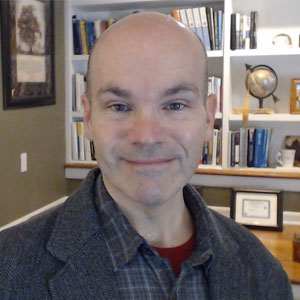Nate Perron, PhD, LPC, LCPC, LCMHC, NCC

Director of Affiliated Faculty & Instruction, Associate Professor
The Family Institute at Northwestern University
Member Since 2011
Briefly describe a typical day in your work life?
A typical workday includes getting my kids off to school, and then delving into a variety of meetings for the day. I see clients and teach counseling classes, so daily appointments include counseling sessions, university meetings, organizing projects in research and scholarship, and teaching classes. I currently focus on my family after 5 p.m., but then I typically get some additional work done on grading, scholarship, or other projects in the evening after my kids go to bed.
What is the biggest challenge facing the mental health field today?
I believe the biggest challenge facing the mental health field today includes the barriers that limit access to services. Great progress has been evident in the United States over the past couple of years, particularly with the recent adoption into the Medicare program and the development of the interstate compact, but we still have a long way to go. Countries with less affluence have even greater disparities with access to mental health support, so I believe we have much work to do to support the expansion of mental health support on a global scale.
What do you think are the biggest misconceptions about counseling?
Often people think of providing counseling services as simply sitting across from people and giving advice. While this misperception is likely diminishing with the rise in counseling awareness, it still seems prevalent in various forms. Counseling is far more involved than simply giving advice, and relies heavily on relationship, exploration and embracing ambiguity. Another misconception is the idea that providing counseling services is not a very difficult profession. Thoughts of sitting in a chair and talking with people does not initially seem challenging, but the need for self-care is vital due to the emotional and mental toll it takes.
What role do you think counseling plays in the delivery of mental health services in today's society?
I believe counseling holds a very important and pivotal role in American society, working alongside other important professions devoted to different aspects of client care. Professional counselors continue to embody the importance of mental health alongside the important realities of holistic care, relational change, developmental awareness, a strengths-based wellness focus, and client advocacy. These important elements work nicely when integrated with important breakthroughs in medical, psychiatric, psychological, marriage and family, sociological, and legal support for people experiencing mental health challenges. Counselors have a unique opportunity to make an important contribution to greater well-being for individuals and society.
What do you do to take care of yourself and rejuvenate?
A major focus that helps me maintain focus and purpose in my work is a sense of purpose through my foundational Christian faith. This allows me to maintain a focus on the needs of others, regardless of client beliefs or backgrounds, as I strive to live by the example of compassion and service set by Jesus Christ. Ensuring my time with family remains intact and vibrant is another area of importance that keeps me strengthened, along with making time to enjoy meaningful activities in the outdoors, watching movies, and attending activities where my kids are involved.
What outside of counseling brings you joy? Tell us about your hobbies or outside interests.
Probably my greatest hobby involves watching my kids grow and thrive. I enjoy attending their sporting events, choir concerts, plays, church, and scouting events. My kids provide regular activity that holds my interest and brings me great joy. In addition, I find great comfort in listening to music, singing, and playing the guitar. I also enjoy refreshing rides on my motorcycle when the warm weather allows, which may involve spending time by myself, or with family and friends.
If you’d like to share how ACA membership or participation has helped you along your career journey, please do!
ACA has been one of the most significant constants in my development as a counselor. I have truly enjoyed the opportunity to learn what I need to know in the profession simply by going to the website and researching content. I have also found the opportunity to engage my areas of interest easily through ACA, as I have become involved in specialty associations, including the ones for counselor educators, spiritually minded counselors, military and government state counselors, and even state divisions. The resources and conferences are also valuable sources of knowledge to help me grow effectively.
